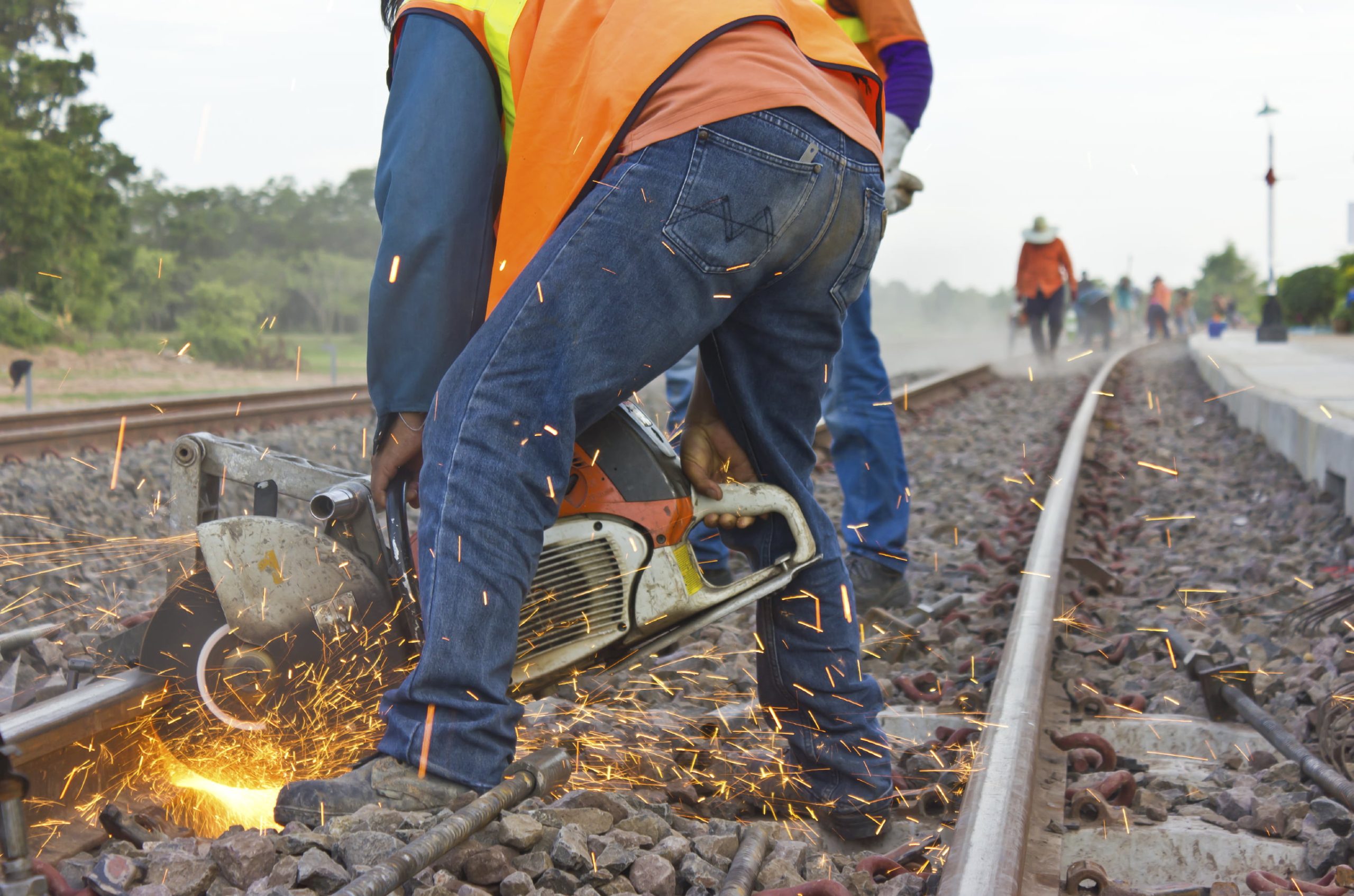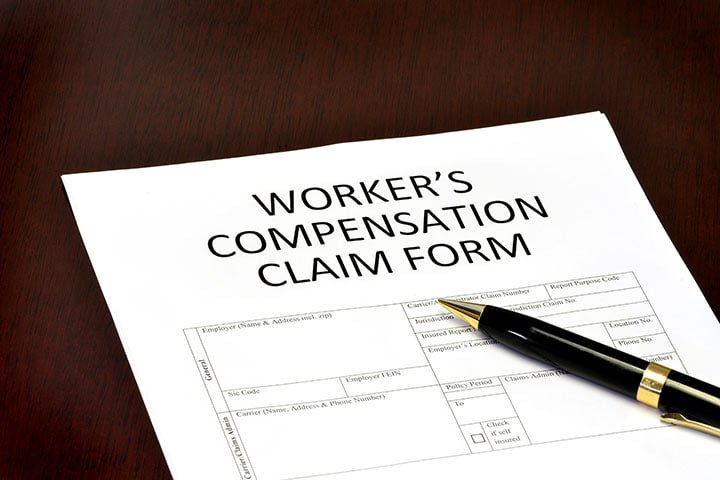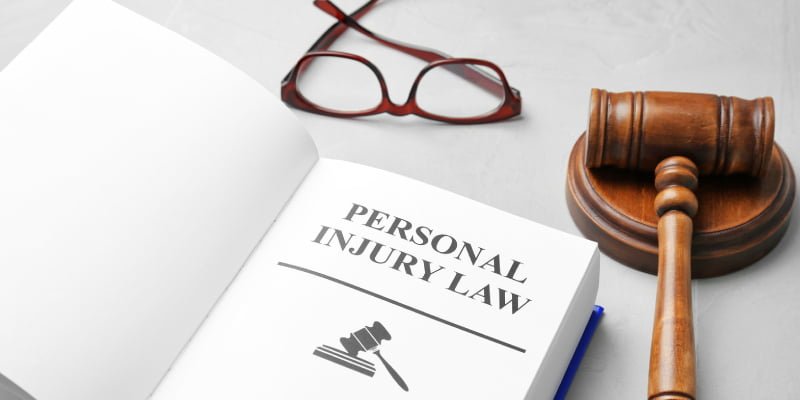
by condormarketing
If you hold back some information from your lawyer, then you are ruining your chances of building a strong case to win the claim or lawsuit and get the compensation that you deserve. Call Bobe & Snell Law Office LLC, today at (470) 268-5802 we have a team of highly qualified and experienced personal injury attorneys.

by condormarketing
Personal Injury Lawsuit
Accidents are unpredictable and can happen to anyone, anywhere, anytime. Whether it is a car crash, slip and fall, dog bite, medical malpractice, assault, workplace accident, or other incidents, accidents could leave you with serious injuries that will require immediate, significant, and long-term medical care and rehabilitation. As a result, you will likely face mounting medical bills and high rehabilitation costs. If the accident that led to your injuries occurred due to someone else’s negligence, then you can file a personal injury lawsuit or claim Atlanta to seek compensation for the damages incurred.
Since this wasn’t your fault, you shouldn’t shoulder the heavy burden of medical bills and lost wages on your own. The stakes are high and therefore, there is no room for mistakes as you seek compensation for your damages. Every step is very important and must be handled diligently because it has serious consequences.
To help you maneuver the process of filing a personal injury lawsuit, getting everything right from the start, here are FIVE common mistakes you should watch out for, and most importantly, avoid them so that you don’t jeopardize your lawsuit or claim.
Making even one mistake can ruin your case and/or complicate the process. Understanding these mistakes is critical to ensure that your case isn’t jeopardized or slowed down unnecessarily.
- Lying to Your Attorney
This is one of the most common mistakes that personal injury victims often make when pursuing compensation for their injuries. The process of filing a claim or lawsuit following a personal injury is a delicate one.
Most people worry much about not upsetting the attorney so that he/she does not decline to take up their case. As a result, they end up preparing themselves to be on guard around their personal injury lawyer instead of being honest and open.
If you hold back some information from your lawyer, then you are ruining your chances of building a strong case to win the claim or lawsuit and get the compensation that you deserve.
In some cases, people lie about crucial details that directly impact the resolution of their case/claim or determine even whether they have a good case at all.
Lying to your attorney is the biggest mistake you can make since it jeopardizes your personal injury case and can land you on the wrong side of the law. It may even cost you a settlement in a personal injury case.
- There are several details you need to be extra honest about when it comes to a personal injury case.
- Do not lie about how you sustained the injury, who was involved, or the circumstances surrounding the incident.
- You also need to be completely honest about any worker’s compensation claim being filed if the injury occurred while you were on duty at your workplace. This last part is significant since in most states you cannot file a personal injury claim against your employer and simultaneously file for worker’s compensation. Only the latter is legal when the injury occurs due to your job.
When you hire an attorney to offer legal representation and help you file a personal injury lawsuit Atlanta to seek compensation, ensure you take his/her legal advice and answer all questions truthfully.
-
Putting Off Medical Treatment
You should seek immediate medical attention after sustaining an injury. Delaying your treatment is a big mistake that could cost your personal injury claim or lawsuit. Understandably, you will experience an adrenaline rush after the accident as your body works to keep you moving as it responds to the collision.
Sometimes, you may not register the pain immediately from the injuries you might have sustained in an accident. It is called shock response. In some cases, you might not even experience any symptoms of your injuries for some days after the accident.
However, just because you are not feeling the pain at that moment does not mean you are not hurt. If you wait too long to seek, the credibility and the extent of your injuries come into question.
Further, delaying seeking treatment may worsen your injuries, opening you up to more severe consequences medically and putting your health at risk. Therefore, it is important to seek medical attention immediately following an accident so that you get properly examined by a doctor.
-
Ignoring Your Doctor’s Advice/Recommendations
Keeping in line with seeking out medical treatment as soon as possible after an accident, you also need to heed the advice of your doctors and other health professionals. Your doctor and emergency room staff will recommend treatment for you that is informed by the medical examination carried out.
Don’t put off or ignore any doctor’s advice or recommendations and instead act on it immediately. This is very important as it will ensure you get proper care to avoid further complications and long-term effects from your injury.
The way you seek out and handle your treatment will affect your settlement offer. You should seek all treatments that you need so that the costs are factored in the settlement amount. The sooner you provide this information to your personal injury lawyer, the sooner your attorney can process a demand letter and settlement negotiation.
Remember if you ignore some treatments and you need them in the future, it will be difficult to pursue a claim again to seek compensation for such treatments.
Furthermore, if you ignore your doctor’s advice, the insurance adjuster will take advantage of that situation to show that your injuries weren’t serious and you deserve less compensation or none at all.
-
Failing to Document the Evidence
Following an accident, people tend to forget that gathering evidence related to the incident is not necessarily left to others. You can gather evidence yourself to help expedite the process of your legal proceedings and bolster the odds of filing a successful personal injury lawsuit Atlanta.
There are several ways to document evidence supporting your side of the events—everything from photographs to video recordings and witness statements.
You can also expedite the acquisition of medical records and medical bills for your attorney by requesting copies following your appointments to hand to him/her personally rather than having them go through the provider’s channels.
All of this evidence-gathering not only speeds up the proceedings but lowers the stress on your personal injury attorney and even minimizes the costs he/she needs to pay for medical records requests.
In addition to your medical costs, you should also document your property damage. This is especially true in car crash cases; you may be entitled to compensation to fix or total out your car and any belongings damaged in the accident.
If an insurance adjuster is attempting to evaluate your vehicle, you want to speak with your attorney first so they can discuss a potential settlement with them directly.
If you cannot document the evidence yourself after a severe accident, law enforcement will likely file a police report with details about the accident. Your personal injury lawyer can acquire this information on your behalf.
-
Forgetting to Have Your Attorney Review All Documents
Though not entirely typical, some insurance companies will attempt to absolve themselves of paying you back by having you sign documentation that waves their liability. Nowadays, too few people read the documents they sign. As a result, many are unaware of what they agree to with these documents.
If someone is trying to get you to sign something following an injury, present the document to your personal injury lawyer first. The attorney will review it and ensure there are no clauses that would invalidate a personal injury claim.
Signing documents like this can cost victims the compensation they deserve and is a cruel tactic used by those unwilling to pay. Never blindly sign anything if you want to avoid becoming a victim of both a significant injury and underhanded contracts.
Personal Injury Lawsuit
If you intend to file a personal injury lawsuit Atlanta, you need to consult an experienced, reputable, and dedicated personal injury attorney to help you get every step of the process right.
At Bobe & Snell Law Office LLC, we have a team of highly qualified and experienced personal injury attorneys that can help accidents you file a successful claim or lawsuit to get the compensation that you deserve.
Call us today at (470) 268-5802 or get in touch with us online to schedule a FREE, no-obligation consultation or case review.

Personal Injury Lawsuit

by condormarketing
Workers’ comp settlement can be a simple and straightforward matter – or a stressful court battle whereby you’ll need an experienced and reputable spinal cord injuries attorney Atlanta to fight for you to get the compensation that you deserve. Call us today at (470) 268-5802 If you were injured at work and want to file a claim for workers’ compensation benefits.

by condormarketing
Unlike worker’s compensation laws, under FELA an injured railroad employee must prove that the railroad was at fault and could have prevented the employee’s injuries or death. Under FELA, an injured railroad worker must prove: The accident happened while the railroad worker was on the job with the railroad. The railroad was negligent (at fault). Call us now at (470) 268-5802 if you a railroad worker who has been injured in a train accident.

by condormarketing
Railroad employees were injured and killed as a matter of course, and the railroads barely compensated them for their injuries or their families for the death of their breadwinner. As a result, in 1906, Congress enacted the Federal Employees Liability Act (FELA) to provide compensation for railroad employees who sustain injuries on the job. Call us now at (470) 268-5802 today to find out how our team of experienced, reputable, and dedicated train accident lawyers can help you file a FELA claim.

by condormarketing
Spinal Cord Injuries Attorney
Spinal Cord Injuries Attorney: How Do Workers’ Comp Settlement Work? What You Need To Know.
Workers’ comp settlement can be a simple and straightforward matter – or a stressful court battle whereby you’ll need an experienced and reputable spinal cord injuries attorney Atlanta to fight for you to get the compensation that you deserve. Read on to learn what is involved, how settlements are calculated, and ways to reach an agreement.
How Workers’ Comp Settlements Are Reached
If a worker is fully recovered and back to work with no outstanding bills or unpaid benefits, the claim can simply be closed.
In many states, closing a claim involves a settlement negotiated between the insurer and the injured worker, often through his/her workers’ compensation attorney. (And if the parties can’t reach an agreement, a judge will need to decide after a hearing.)
The settlement process typically begins with an offer from the insurance company and employer. This may include payment for unpaid benefits or medical bills, as well as costs of future treatment. If an injury leaves a worker permanently impaired, he/she may also be entitled to a disability award to compensate him/her.
A work-related injury settlement can be either a lump sum or a structured payment plan:
- Lump-sum payment – The injured employee receives a one-time payment for all medical costs and benefits under the claim. Depending on the state, the injured worker may have to agree not to seek any future reimbursement for the injury.
- Structured payment – The injured employee will receive regular payments over a specified period. They may include a separate medical account to pay for future medical care.
Before a settlement is reached, you and your attorney calculate what you think the workers’ comp payout should be. It should be enough to cover previous medical bills and the costs of any future medical care. The settlement should factor in:
- Balances on medical bills, including ambulance rides
- The likelihood of future treatments, such as physical therapy or surgery
- Lost wages or future wage loss
- Temporary or permanent disability payments
- Attorney fees
- State workers’ comp laws and limitations
Once the calculation is finalized, your spinal cord injuries attorney Atlanta will negotiate with the insurance company. Typically, the final settlement is a compromise between the two parties.
In some states, a judge must review the proposed settlement before it is finalized. The judge will consider whether it is fair to the employee, but it is always helpful for you to have an experienced workers’ comp lawyer to protect your interests.
Your role is minimal during settlement negotiations if you have an attorney to represent you and negotiate on your behalf. But, still, keep the lines of communication open and stay updated on progress.
Settlements may take weeks or months to hammer out. During this time, be sure you know your return-to-work options. Injured workers who’re kept informed and know their options are less likely to sue.
If the insurer and your attorney can’t reach a settlement, then the matter will likely head to court for a hearing. And that can be a bit of a gamble for both sides. It will now be upon the court to decide which benefits you deserve based on the merits of your case.
Denied Workers Compensation Claims
Learn about some of the common reasons for denials of workers’ compensation claims – and what you can do about it.
If you were injured on the job or developed a medical condition because of your work—such as lung disease from exposure to toxic chemicals or a cumulative trauma like a repetitive strain injury (RSI)—you are no doubt hoping to be eligible for workers’ compensation benefits.
But what can you do if your claim has been denied? The answer could depend on the reasons for the denial.
Common Reasons for Denial of Workers’ Comp Claims
Sometimes, employers or their insurance companies often look for any possible reason to deny workers’ comp claims. Of course, that reason should be a valid one under the law. There are several common reasons for claim denials, including:
- Missed deadlines – To receive workers’ comp benefits, you should report your injury or illness to your employer right away. After that, you generally need to file a workers’ comp claim with the state agency (although in some states, your employer or the insurance company will take care of this step after you have notified them of your injury). States have different time limits for reporting injuries and filing claims. For instance, Georgia law requires injured workers to notify their employer within 30 days of the date of injury. If you miss the deadlines, your claim will probably be denied. In some states, you will not be penalized for missing the reporting deadline (by not giving your employer written notice of the injury), as long as your supervisor actually knew that it happened. Still, your claim must be filed in time.
- Disputes about whether the injury is work-related – Your employer may say that you weren’t working when you were injured, that you were involved in some kind of misconduct at the time, or that your current medical condition isn’t actually a result of a workplace accident or exposure. Whatever the reason for the dispute over whether your injury or illness is work-related, you’ll need to gather evidence to support your claim and hire an experienced, reputable, and dedicated spinal cord injuries attorney Atlanta to help you build a strong case. Maybe you need witness accounts about the circumstances of the accident. Or you may need more medical evidence. If your treating doctor has already attributed your condition to your work, but the insurance company disagrees, you may need to attend an independent medical examination to get another doctor’s opinion.
- Your condition doesn’t meet state guidelines – The law in your state may have special restrictions on workers’ comp claims for cumulative trauma or psychological conditions. Some states rule out workers’ comp benefits for illnesses caused by long-term emotional stress at work. Or your injuries might not be severe enough to meet the requirements for a workers’ comp claim in your state.
- You filed the claim after you left your job – Insurers usually deny claims that were filed after the employee was fired, laid off, or quit. But you might have had a good reason for the delay. Maybe you reported the injury while you were still at the job, or you were injured in the period after you gave (or were given) notice but before your last day. Or maybe you were fired in retaliation for reporting a workplace injury (which is illegal). Some states have special rules for workers’ comp claims filed after you left your job. If you qualify for one of the exceptions in your state’s law, you may be able to contest the denial.
What to Do When Your Workers’ Comp Claim Is Denied
You shouldn’t give up your right to workers’ comp benefits just because your claim was initially denied. First, look closely at the letter telling you that your claim was denied. It will probably include the reasons for the denial.
If you think it was simply a matter of mistaken paperwork or something similar, you might consider contacting the claims adjuster to see if you can clear up the issue. But this route isn’t likely to be successful unless your employer or the insurance company made a bona fide mistake and admits it. More likely, you will have to consider appealing the denial.
Appealing a Workers’ Comp Claim Denial
The letter you received may include information about how to appeal the denial of your claim. If so, read it carefully. The appeals process varies in each state. Often, the first level of appeal will be at a hearing before an administrative law judge, where you will have to present medical and other evidence to support your claim. The hearing can be through a state labor department or a state board of workers’ compensation. There are additional levels of appeal beyond the initial administrative levels as well, which vary depending on the state.
When You Need a Lawyer
Unless your claim was denied due to a simple mistake that was immediately cleared up, it would be smart to reach out to a workers’ comp lawyer as soon as possible. An attorney can help you determine whether an appeal would be the best course of action for you. The timelines for workers’ comp appeals are short and strict, and you don’t want to lose your rights to benefits just because you missed a deadline.
Before you consider filing an appeal yourself, you should definitely talk to a spinal cord injuries attorney Atlanta. Appeals are complicated legal processes, involving rules of evidence and civil procedure that the judge will expect you to know. If you don’t win at the initial levels, you may not be able to present additional evidence later in the process.
One of the reasons that many injured employees lose their appeals is because they didn’t have an experienced workers’ compensation attorney at their side to help them prepare a strong case. Also, most workers’ comp lawyers charge only a percentage of the benefits you receive, so it won’t cost you anything unless you win.
Spinal Cord Injuries Attorney
If you were injured at work and want to file a claim for workers’ compensation benefits, or perhaps your claim was denied and you want to appeal, contact Bobe & Snell Law Office LLC to speak to one of our experienced workers’ comp attorneys and find out how we will help you.
Call us today at (470) 268-5802 or get in touch with us online for a free, no-obligation consultation/case review.

Spinal Cord Injuries Attorney

by condormarketing
The Georgia employer and/or company responsible for handling workers’ compensation claims will investigate on-the-job accidents and injuries. Call us today at (470) 268-5802 Our attorney will help you navigate the Atlanta workers compensation claims process, guiding and helping every step of the way to ensure you get everything right.

by condormarketing
To be eligible for workers’ compensation benefits in Atlanta, an employee must be injured in an accident that: Arises out of the employment, and Arises in the course of employment. Call us today at (470) 268-5802 or fill out our online contact form to schedule a free, no-obligation consultation and case review.

by condormarketing
You should bring as much information about your workplace injury as possible for the attorney to review during your first consultation. Example; A summary of the workplace accident, including the date of the injury, The name and contact information of the supervisor who received notice of your injury and the date the notice was given. call us at (470) 268-5802 to get Consultation with a member of our workers’ compensation legal team.

by condormarketing
Atlanta Train Accident Attorney
Trains are a common mode of transportation in the United States, from subways and passengers’ trains to commuter rails, trams, and more. While train accidents aren’t as common as traffic accidents, they can cause serious injuries and fatalities when they do occur. In 2019, the United States recorded a total of 1,835 train accidents, according to the Federal Railroad Administration. Over 900 people died as a result of a train accident or incident on the railroads. Most train accidents occur due to human error or other acts of negligence. Railroad workers face a higher risk of injury and death than workers in many other fields. If you were injured in a train accident, or your loved one was killed, you can hire our Atlanta train accident attorney to help you seek justice and collect compensation for your injuries or loss.
Railroad Workers and FELA
At the turn of the 20th century, the railroad industry was expanding quickly without any care or concern for the safety standards of railroad workers.
Railroad employees were injured and killed as a matter of course, and the railroads barely compensated them for their injuries or their families for the death of their breadwinner. As a result, in 1906, Congress enacted the Federal Employees Liability Act (FELA) to provide compensation for railroad employees who sustain injuries on the job.
What an Injured Railroad Worker Must Prove
Unlike worker’s compensation laws, under FELA an injured railroad employee must prove that the railroad was at fault and could have prevented the employee’s injuries or death.
Under FELA, an injured railroad worker must prove:
- The accident happened while the railroad worker was on the job with the railroad.
- The railroad was negligent (at fault).
- The railroad’s negligence played some part (even the slightest part), in causing the injury or death.
What You Can Recover Under FELA
Under FELA, the family of a railroad employee who suffered wrongful death or an injured railroad employee is entitled to recover compensation for:
- Past, present, and probable future harm attributable to the railroad’s negligence
- Past and future lost wages and benefits
- Pain & suffering
- Emotional distress injuries
To build a strong case and increase your chances of getting the compensation that you deserve, it’s critical that you contact an experienced train accident lawyer BEFORE completing an accident report and giving a statement to the railroad.
Railroad Employees Covered Under FELA
The test for whether a railroad employee is covered under FELA is determined by evaluating whether what he/she does in any way furthers or affects transportation. It’s enough if any part of the employee’s duties affects commerce.
Railroad employees such as conductors, switchmen, brakemen, engineers, laborers, and the following types of railroad employees have been considered covered under the FELA:
- A lumber tie inspector was covered by FELA because many of the ties were being sent across state lines.
- A railroad’s clerical employee was covered by the FELA because her handling of the railroad tracings for blueprints was essential to the maintenance of the trains.
- A fireman developed silicosis due to years of inhalation of silica from locomotives’ sanding boxes.
- A member of a switching crew handled cars that were not destined for interstate commerce until after the accident. He was on a railroad track, considered to be an interstate highway, at the time of the accident.
The only way you can be sure if your case is covered under FELA is to talk to an Atlanta train accident attorney. Contact us for a FREE, no-obligation consultation.
Railroad Worker Injury Claims
In the early 1900s, railroads were one of the main sources of transportation and shipping in the United States. Thousands of people worked on our nation’s railroads, maintaining the tracks and the trains.
Railroads were and still are the backbone of our country, with over 140,000 miles of tracks, millions of passengers, and roughly 113,300 railroad employees. Today, railroads provide secure employment and good pay, but they aren’t always the safest place to work.
In 1908, the Federal Employer’s Liability Act (FELA) was enacted. This was meant to address the dangerous conditions many railroad employees faced. Before the 1900s, switchmen and brakemen faced harrowing odds: the average lifespan was seven years, and the odds of dying a natural death were four to one.
When employees were injured or killed on the railroad, they had little to no way to recover damages. Most employees were considered to have “assumed the risk” of working on a railroad, and the railroad company would use that consideration against the employee. Thankfully, FELA put a stop to that practice.
Railroad workers are protected by federal law when a railroad provides interstate commerce between multiple states. The Federal Employer’s Liability Act (FELA) requires railroads to be safe for workers by following safety guidelines and conducting routine safety inspections.
An injured railroad worker can recover damages if they show that an act by the railroad company, or a failure to act, caused the worker’s injuries. Family members of killed railroad workers can also receive compensation if the company’s negligence played a role in the death of their loved ones.
Why Hire A Lawyer After A Train Accident?
Victims of train accidents may be severely injured and traumatized, which can result in expensive medical attention or time away from work. A train accident lawyer can help you determine liability in an accident and collect compensation to help cover your losses.
Federal and state laws that govern railroad safety are complex. Different government agencies may investigate the scene of the crash. It takes an experienced Atlanta train accident attorney to sift through these complicated laws and investigations and build a strong case for you, putting your mind at ease.
FELA for Railroad Workers
FELA enables injured railroad workers to sue the railroad company for negligence, either at a federal or state level suit. The act also eliminated antiquated laws that allowed railroad companies to escape litigation. In 1939, FELA finally abolished the “assumption of risk” clause, making it much easier for railroad workers to collect compensation for any work-related injuries.
Unlike worker’s compensation laws, which don’t require proof of negligence, FELA allows employees to sue the railroad company and hold it liable for costs. This is significant because worker’s compensation isn’t always enough to cover the expenses associated with a railroad accident. In many cases, railroad injures are severe, possibly life-altering, or even fatal.
How Can I Collect Compensation Through FELA?
In any type of personal injury case, including a FELA claim, the plaintiff (you) must prove the other party (the railroad) acted in a way that led to your accident. For example, if the company didn’t follow safety regulations correctly or didn’t provide proper safety equipment, it may be considered negligent.
Under FELA, you only need to prove the railroad was slightly negligent to receive compensation under what is known as the “comparative fault system.” This ensures you can be partially responsible for your own accident and still collect compensation. The amount of compensation you receive will be affected by how liable you are. For example, if you were found 10% responsible in a $200,000 case, you would receive the total value minus your 10% liability – $180,000 in this example.
FELA was designed so injured railroad workers have the option to recover the costs of current and future damages to get their lives back on track and live comfortably. This is in stark contrast to worker’s compensation laws, which often have strict payout and time limits.
I Heard Trials Can Take Long – Do I Have to Go to Court?
FELA gives you the right to sue the railroad company, but you don’t always end up in court. Railroads often offer a significant amount of money to settle out of court. You then have the option of accepting the settlement, negotiating a higher one, or going to trial.
Your Atlanta train accident attorney will help you decide the best course of action and what types of damages you can claim and receive compensation for. Damages usually include medical bills, lost wages, pain and suffering, and other expenses.
Atlanta Train Accident Attorney
Are you a railroad worker who has been injured in a train accident? Contact Bobe & Snell Law Office LLC today to find out how our team of experienced, reputable, and dedicated train accident lawyers can help you file a FELA claim to seek compensation for your damages.
Call us now at (470) 268-5802 or contact us online for a FREE, no-obligation consultation/case review.

Atlanta Train Accident Attorney












